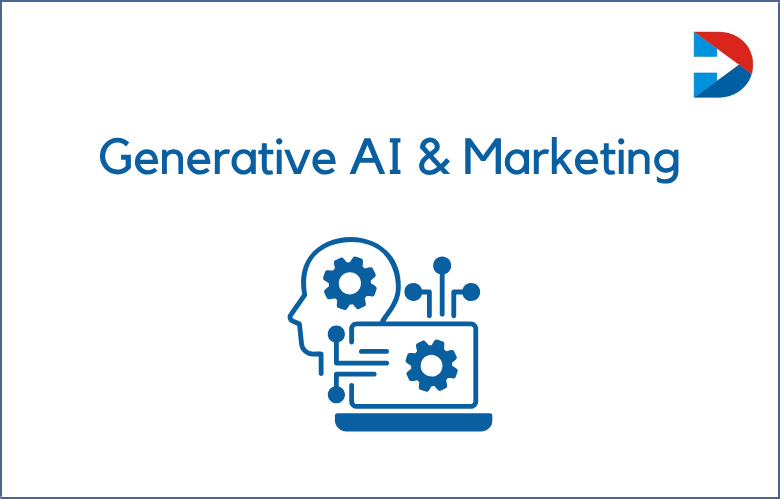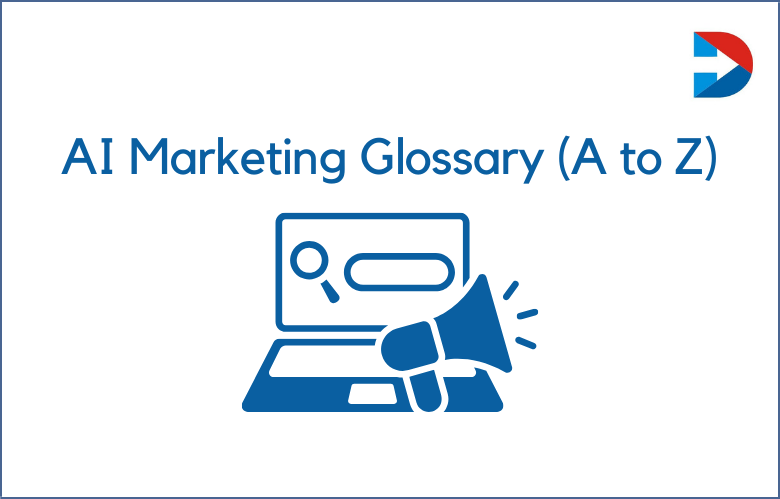
Artificial intelligence (AI) is transforming the e-commerce industry and creating endless possibilities. With the advent of generative AI, e-commerce businesses can now create and design unique products, optimize their marketing strategies, automate their operations, and provide hyper-personalized experiences to customers.
We’ll provide an e-commerce marketing guide to generative AI and show you how it can help you enhance your online sales and revenue.
What is Generative AI?
Generative AI is a subset of artificial intelligence that focuses on creating novel content, designs, or outputs not predetermined by user input or predefined rules.
Generative models use algorithms to create outputs that resemble natural human creations, such as images, videos, voice, and text. Examples of generative AI applications include image and video synthesis, natural language processing, and neural style transfers.
How to get started with Generative AI in E-Commerce Marketing
Starting with generative AI in e-commerce marketing may seem daunting, but it’s simple. E-commerce businesses can start by identifying their marketing goals, the data they need to collect, and the generative AI models that best fit their needs.
Some popular generative AI platforms for e-commerce include Google’s DeepDream, IBM Watson, and NVIDIA’s StyleGAN. Businesses can seek the help of AI experts and consultants to guide them through the process and ensure optimal results.
Overcoming the Complexities of Utilizing Generative AI in E-commerce Marketing
AI has been revolutionizing numerous industries, and e-commerce is no exception. With the help of generative AI, businesses can create marketing campaigns with a more personalized approach, enhance customer experiences, and increase sales.
However, implementing generative AI is easier said than done, as businesses may encounter several challenges affecting their desired outcomes.
We’ll cover some of the most significant barriers companies encounter when utilizing generative AI in e-commerce marketing and how to overcome them.
Unpacking the Tough Road of Generative AI in E-commerce Marketing
As AI advancements continue to take root in different sectors, e-commerce marketing is no exception. Generative AI is a popular element that is increasingly gaining more attention.
It’s a fantastic tool to help e-commerce companies optimize their marketing goals. However, it is not all sunshine and rainbows in the world of Generative AI.
Companies often encounter challenges while trying to incorporate this technology into their operations. We’ll unpack the challenges of using Generative AI in e-commerce marketing.
One significant challenge of using Generative AI is data preparation. This is because Generative AI requires a lot of data to function efficiently.
In e-commerce, a ton of data is available, and organizing it to fit into the Generative AI system becomes challenging. The data needs to be unique for Generative AI to be effective.
How can E-commerce Businesses use Generative AI?
Generative AI has numerous applications for e-commerce businesses that can help them enhance their marketing strategies and increase their sales. A few examples of generative AI use cases in e-commerce include:
Product design:
With generative AI, e-commerce businesses can create unique product designs tailored to their customer’s preferences and needs. Generative models can analyze customer data and provide insights into popular product features, colors, and materials. Marketing campaigns:
Marketing campaigns
E-commerce businesses can use generative AI to develop hyper-personalized marketing campaigns that resonate with their target audiences.
Generative models can analyze customer data, purchase history, and online behavior to predict the best marketing channels and messages.
Product recommendations
Generative AI can also provide personalized product recommendations to customers based on their past purchases, search history, and preferences. These recommendations can increase customer loyalty and repeat purchases.
What are the benefits of using Generative AI in E-Commerce Marketing?
The benefits of using generative AI in e-commerce marketing are numerous and can help businesses gain a competitive advantage in today’s digital age. Some of the most notable benefits include:
Enhanced customer experiences
Generative AI can help e-commerce businesses create personalized and engaging experiences tailored to their customer’s preferences and needs. This can increase customer satisfaction, loyalty, and advocacy.
Increased operational efficiency
Generative AI can automate repetitive and time-consuming tasks such as product design, marketing campaigns, and product recommendations. This can save businesses time, money, and resources while improving the accuracy and efficacy of their operations.
Improved sales and revenue
Generative AI can help e-commerce businesses optimize their marketing strategies, increase customer engagement, and drive more sales and revenue. This can help businesses grow their online presence and gain a larger market share.
Challenges of Using Generative AI in E-commerce Marketing
Privacy and Legal Issues
E-commerce stores must follow strict regulations for collecting and using customer data. GANs need vast amounts of data to create high-quality images and text.
However, these data can be classified as sensitive, and the data generating these outputs cannot be relied upon for accuracy or potential biases. Furthermore, there are cases where GAN-acquired data goes against state privacy laws, leading to sanctions and lawsuits.
Cost-Benefit Analysis
Implementing GANs in an e-commerce store can be costly, requiring computational power and significant data.
Investing in GAN technology requires a cost-benefit analysis first because using a system too expensive for the expected benefits will hurt the business’s overall growth.
This analysis must be done correctly to determine the feasibility of implementing GANs in a company’s marketing strategy.
Dependability and Reliability
GANs are very versatile, but they have limitations regarding their reliability rates. Specifically, Gan networks can be unpredictable and produce results in many different variations.
Training these networks can be difficult as getting good results can take a long time. Weak GAN models may produce poor results, which can waste time and result in misleading marketing content.
Creativity
Many e-commerce items depend on their aesthetic appeal. GAN-generated images require the input of domain expertise to create excitement and appeal.
A human creative must be experienced in marketing and graphic design, incorporating elements into the images and text GANs produce.
A lack of experiential domain expertise can result in substandard marketing material that may fail to attract potential customers.
Ethical issues
Reliance on GAN systems must be ethical. In several instances, markets have used GAN-generated images to accompany their marketing content, resulting in misleading information.
It is essential to maintain the rules and regulations governing the conduct of e-commerce and adhere to ethical principles throughout the creative process.
Conclusion
Generative AI is reshaping the e-commerce industry and providing exciting opportunities for businesses to innovate and differentiate themselves.
By leveraging generative AI in their marketing strategies, e-commerce businesses can create personalized experiences, automate their operations, and increase their sales and revenue.
As technology evolves and matures, we expect more businesses to adopt generative AI and stay ahead of the competition.



